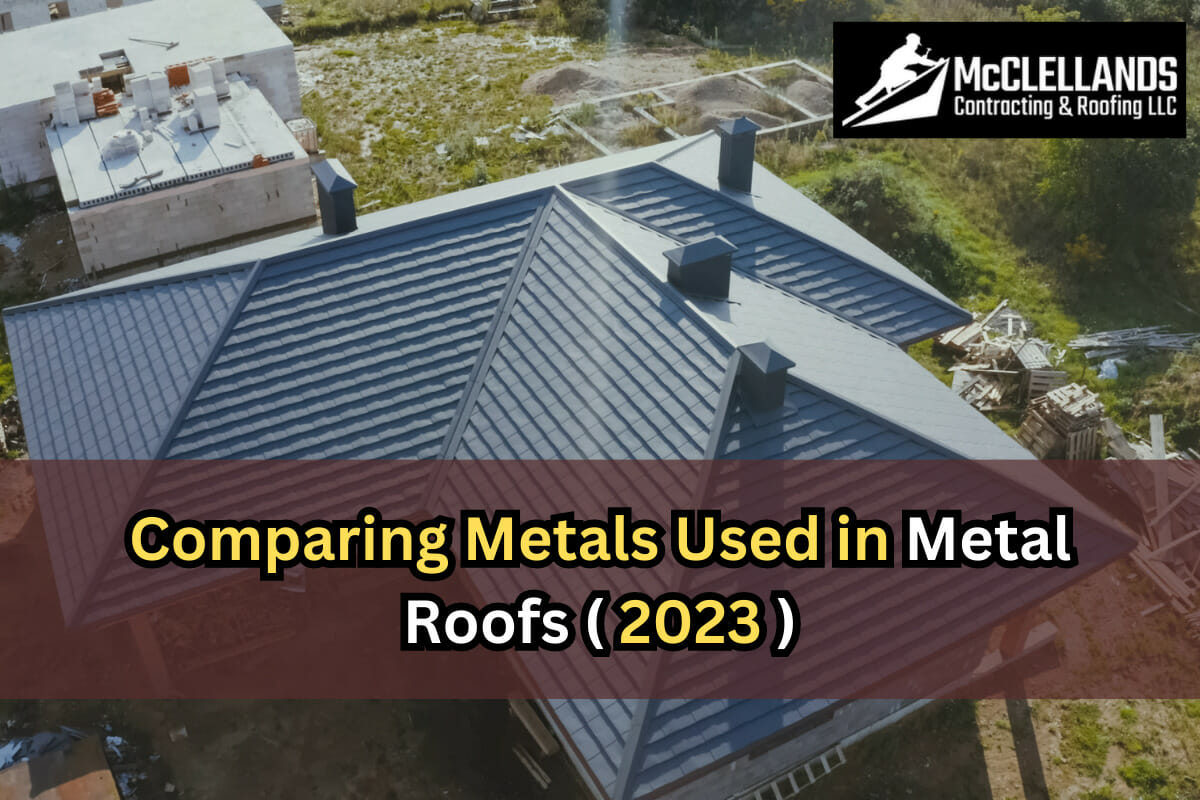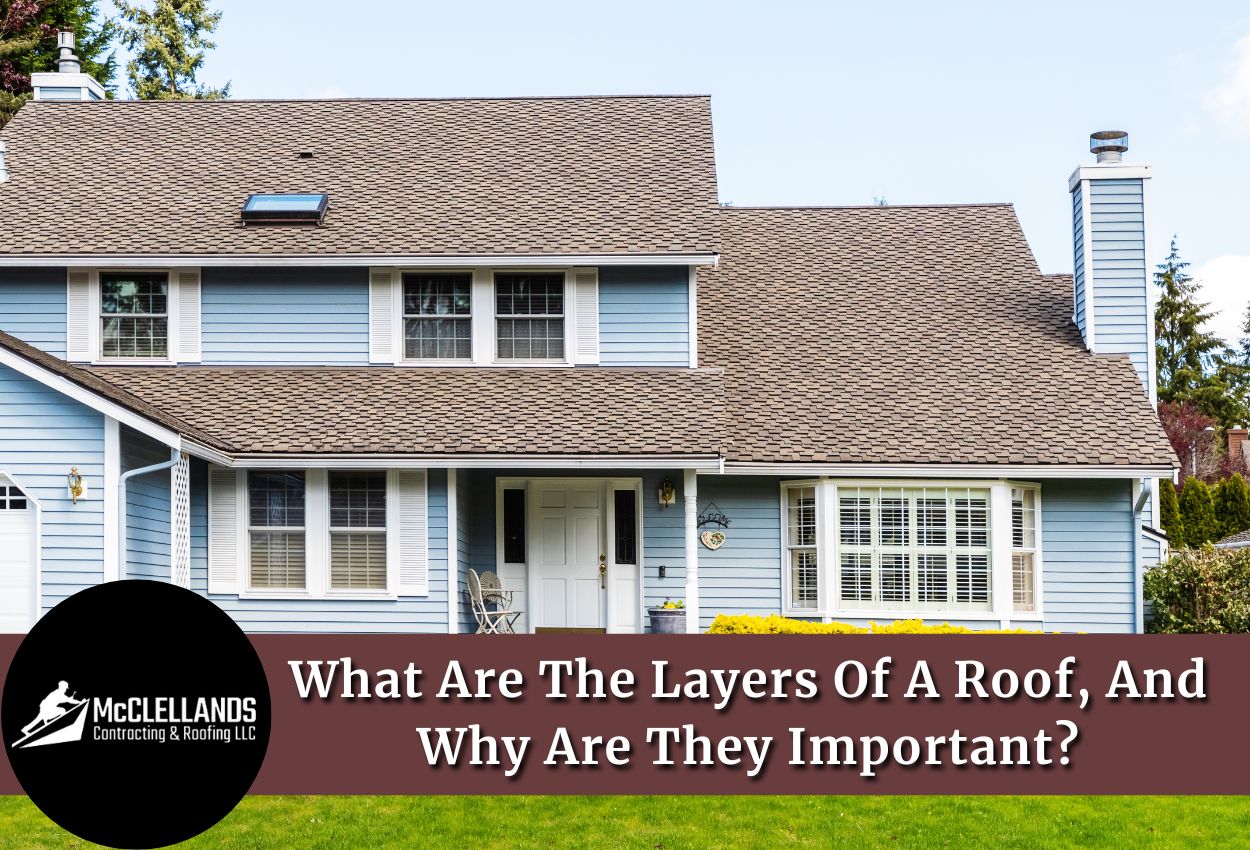Got a new roofing project on the horizon? The metal you select for your roof is a game-changer. And remember, it's not just about the look, it's also about durability, cost, and sustainability.
Various metal roofing options, such as standing seam, corrugated panels, and shingles, are available. But apart from the style, choosing the right metal for your roof is crucial too. It's kind of like picking out a new car. You're not just looking at the color or design, you're also considering the cost to maintain it, and how well it handles different weather conditions.
Think of this article as your trusty guide. We're going to discuss all the details of the most common metal roof materials, from their unique characteristics to their pros and cons. So let's get started!
#1 Aluminum Roofing
Aluminum is one of the most popular and low-maintenance types of metal roofing that has several applications.
The use of aluminum in metal roof systems has seen a substantial increase in recent years. These metal roofs offer outstanding performance and can lower energy costs. They are a go-to option for architects, contractors, and homeowners alike.
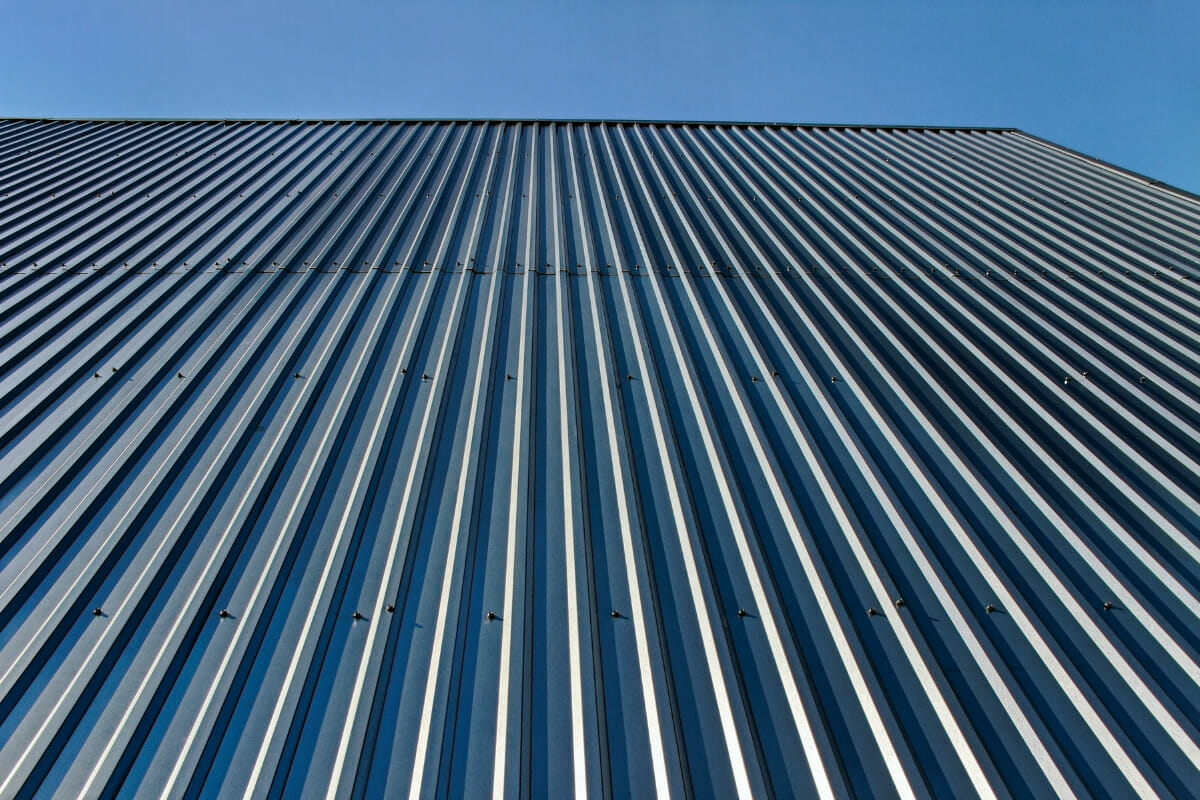
Pros
Durability:
These roofs can last for 50 years or more. Aluminum forms a thin layer of oxide when it reacts to the air, making it highly resistant to corrosion, ensuring a long lifespan for your roof.
Lightweight:
Aluminum is light, which makes it easier to install and reduces structural stress on your home. This can also help reduce labor costs as there will be less physical work required to transport and install the aluminum roof panels.
Versatile:
Aluminum roofs don’t have a single form. The material can be used in several different metal roofing types, such as corrugated panels or standing seam metal roofs.
Cons
Cost:
Aluminum is pricier than some other metal roofing options, such as a basic steel roof. Also, aluminum usually requires an additional coating for aesthetic appeal and durability, which can add to the cost.
Dent-prone:
While aluminum metal roofing panels are durable, they are also relatively soft. Its lightweight nature means that it can dent more easily than some other metals, particularly in areas prone to hail.
Our Rating: 8/10
#2 Steel Roofing
Steel roofs, especially standing seam steel roofs and steel shingles, are also quite popular in Pittsburgh. This alloy, primarily composed of iron, carbon, and other materials, is a staple in the roofing industry. Known for its strength and durability, a steel roof can be a good option for any home. Nowadays, you also have access to various enhanced versions of steel roofs, such as galvanized and stainless steel and steel metal shingles that offer better durability and require little maintenance.
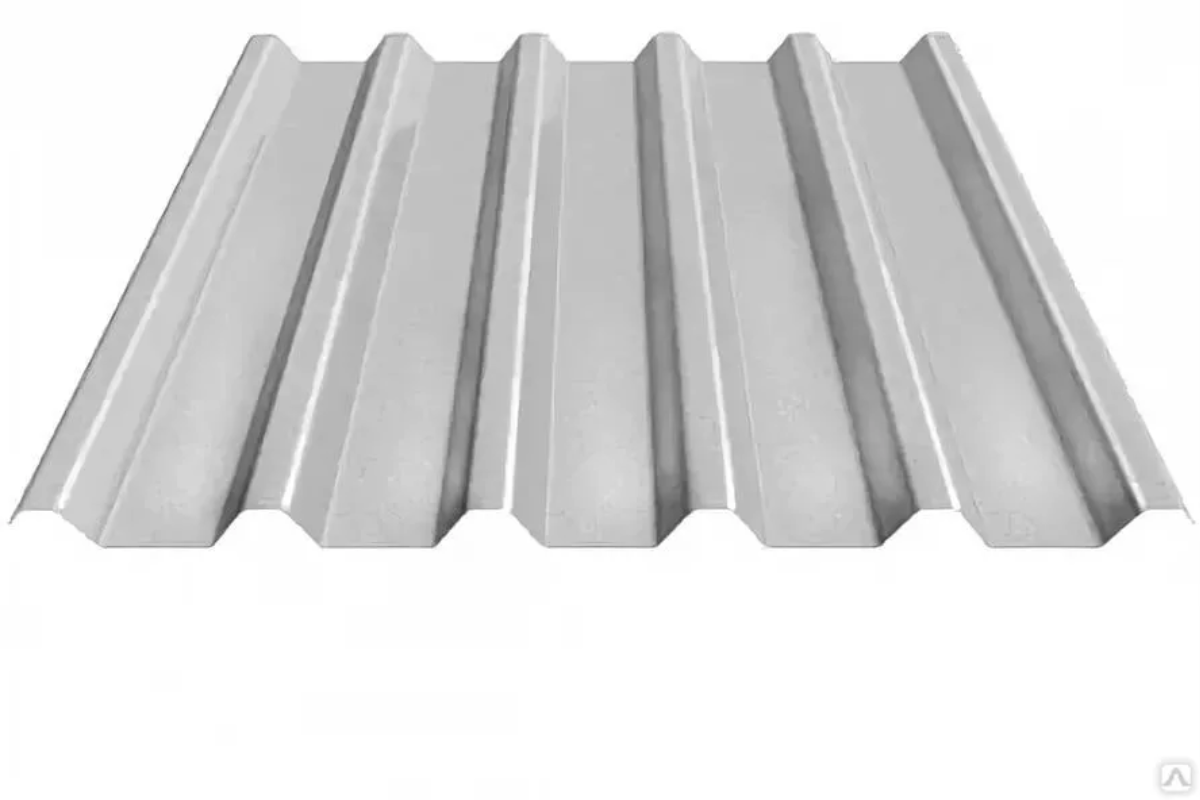
Pros
Exceptional Strength:
Steel is one of the toughest materials around, especially stainless steel. It's designed to withstand extreme weather conditions, from heavy snowfall to high winds.
Affordable:
One of the biggest reasons steel is popular is its affordability. Steel roofs even cost less than aluminum, so you can install one even if you are on a budget.
Eco-Friendly:
Steel is a fantastic choice for the environmentally-conscious homeowner because it is one of the most recycled metals.
Cons
More Prone To Rust:
A steel roof’s biggest concern is that it is prone to rusting and corrosion. However, this is not a concern for stainless steel and galvanized steel options.
Noise:
Some homeowners may experience increased noise levels during heavy rain or hail storms with a steel roof.
Our Rating: 8.5/10
#3 Zinc Roofing
Zinc is a naturally occurring metal known for its excellent resistance to corrosion, extreme durability, and superb energy efficiency. It has a blueish-gray color, somewhat like aluminum, but with a more refined overall look. While it may not have the same usage rate as other metal roofs, zinc has gained massive popularity as a material for roof replacement projects due to its distinct characteristics and high performance.

Pros
Longevity:
Longevity is where zinc really shines. This promising material can last anywhere from 60 to 80 years, meaning less replacement and less hassle.
Self-Healing:
One feature zinc possesses that hardly any other metal offers is its self-healing ability. The outer layer of zinc protects it against rust, scratching, and even dents.
Flexible & Versatile:
Zinc is lighter and can be easily formed in different shapes according to your roof’s needs, which makes the work easier for contractors. It is also available in several metal roof styles, so you can pick the one that suits your personal taste.
Cons
Expensive:
With great durability and strength comes a greater price. The prices for zinc are much more expensive, way more than its counterparts like aluminum and steel.
Expansion Problems
While it does not rust, there is a concern for expansion and contraction, especially in higher temperatures.
Our Rating: 9/10
#4 Copper Roof
Imagine a metal roof that boasts not only incredible longevity but also ages with grace, acquiring a distinct patina over time. Yes, we're talking about copper; A classic, premium choice for metal roofs in Pittsburgh. It's not just about the aesthetics, copper roofs are well-known for their durability as well.
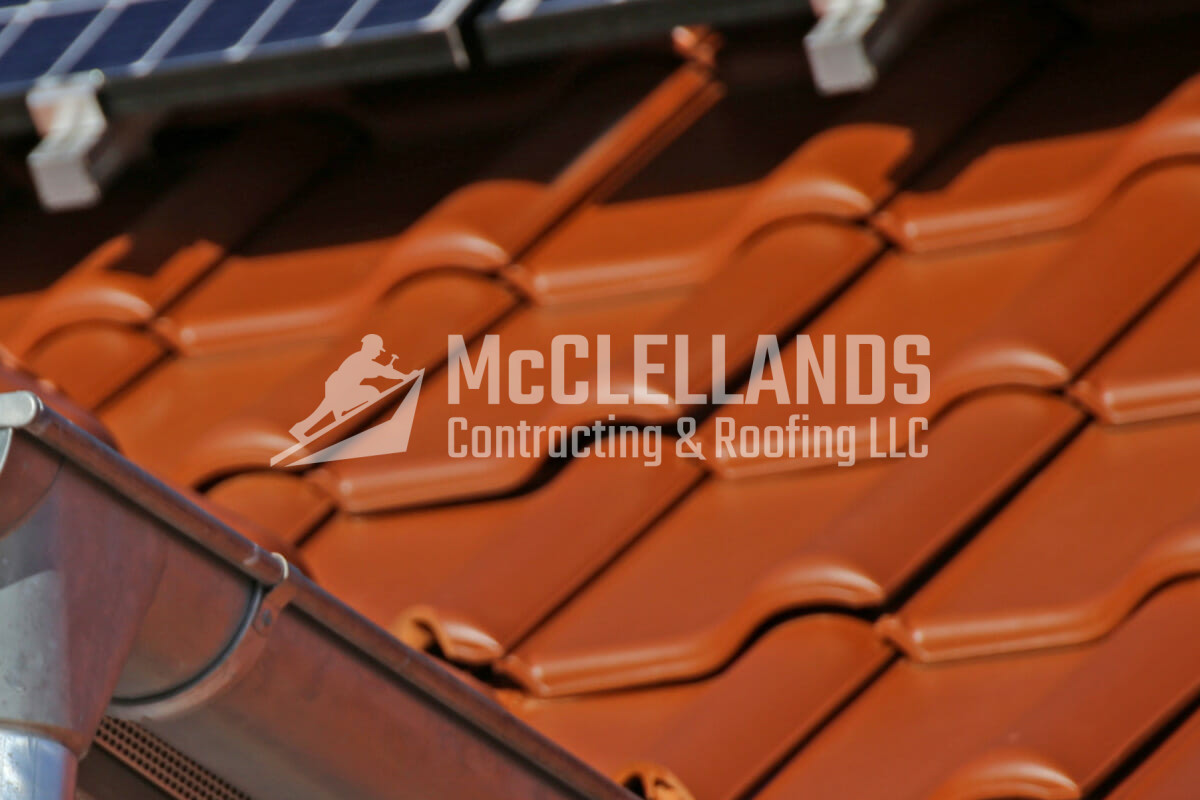
Pros
Best-In-Class Durability:
Copper roofs can last for a century or more with proper maintenance, which is a testament to their durability. Plus, they stand strong against the harshest weather conditions.
Aesthetics:
Copper roofs have a shiny brown color. Over time, copper develops a unique greenish-blue patina, which not only protects the underlying metal, but also adds a vintage charm to your home.
Can Reduce Cooling Costs:
Copper roofs are reflective, they do not absorb sunlight and radiate less heat. This can help reduce your energy bills.
Cons
- The biggest downside of copper is the cost. Copper is significantly more expensive than most metal roofing materials.
- The prices of durable types, such as standing seam roofs, are too high.
Rating: 9.5/10
#5 Tin Roof
Last but not least are tin roofs. Historically, tin was used for roofing in the 19th century, but today tin roofs are often made from steel coated with a layer of tin. So if you see a tin roof, it is most likely a galvanized steel roofing system.
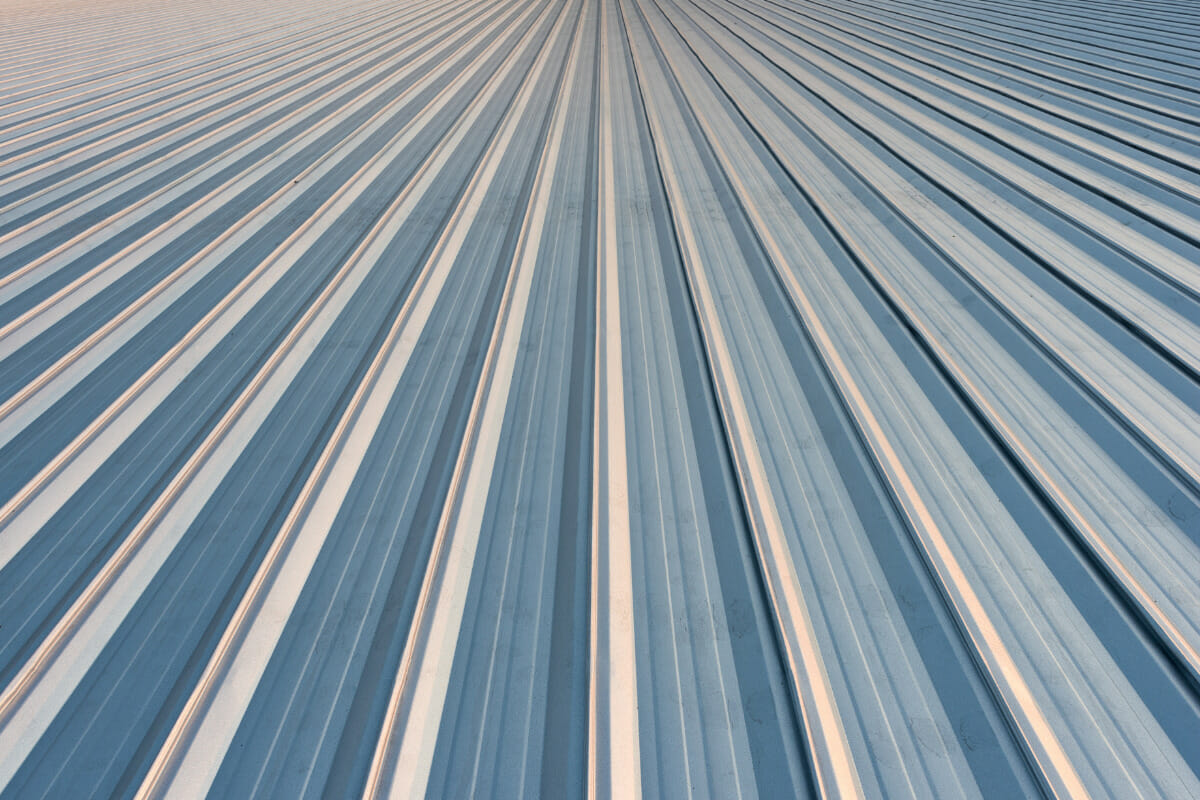
Pros
Easy installation:
Like galvanized steel, this material is quite easy to install.
Cons
Hard To Find:
Tin roofs were popular a few years back, but now you might not have access to them as the market is flooded with newer materials. It can be hard to find tin roof installers too.
Noise:
While some find the sound of rain on a tin roof charming, it can be disruptive.
Denting:
Tin can be susceptible to dents from hail or falling branches. However, regular roof maintenance can help mitigate this.
Rating: 8/10
Which Is The Best Metal Roof? A Comprehensive Evaluation
In the previous section, we examined various metals used in metal roof systems and explored their individual characteristics. Now, it's time to compare these metals against specific factors to determine which one stands out as the best choice.
Durability and Lifespan: How Long Does A Metal Roof Last?
Life expectancy is a huge factor when deciding the type of metal roof panels you want to install. Most metal roofs have an impressive life expectancy, especially when we compare them with other roofing materials such as asphalt shingles and wood shakes. However, the lifespan of each type of metal is not the same.
Copper has one of the longest lifespans amongst metal roofs. A copper roof can last for more than 100 years, provided your roofing contractor installs it correctly. Zinc roofs can also last for more than 60 years and steel and aluminum roofs can last 50+ years.
Durability Winner: Copper
Metal Roofing Costs
Another huge factor in your decision on which metal you should use for your home is the cost.
While normal metal roofing materials such as steel and aluminum are somewhat affordable, specialty metal roofs such as copper are very expensive, and can even be twice the cost of a regular metal roof.
Here is the cost of each of the materials we discussed today, according to industry experts:
- Aluminum Metal Roof: $3.50-$6.50 per square foot
- Galvanized Steel Roof: $6-$12 per square foot
- Stainless Steel Roof: $8-$18 per square foot
- Zinc Roof: $7-$15 per square foot
- Tin Roof: $5-$20 per square foot
- Copper Metal Roof: $16-$30 per square foot
Cost Winner: Aluminum
Curb Appeal
The copper roof offers the best aesthetic appeal among all the metals. With this, you will get two looks. The first look will be a shiny penny bronze that looks great with white or cream siding and the second look occurs when it develops a sea-green patina.
Steel and aluminum are also available in a variety of metal roof colors, so you can choose according to your preference.
Curb Appeal Winner: All the metals offer their own unique look!
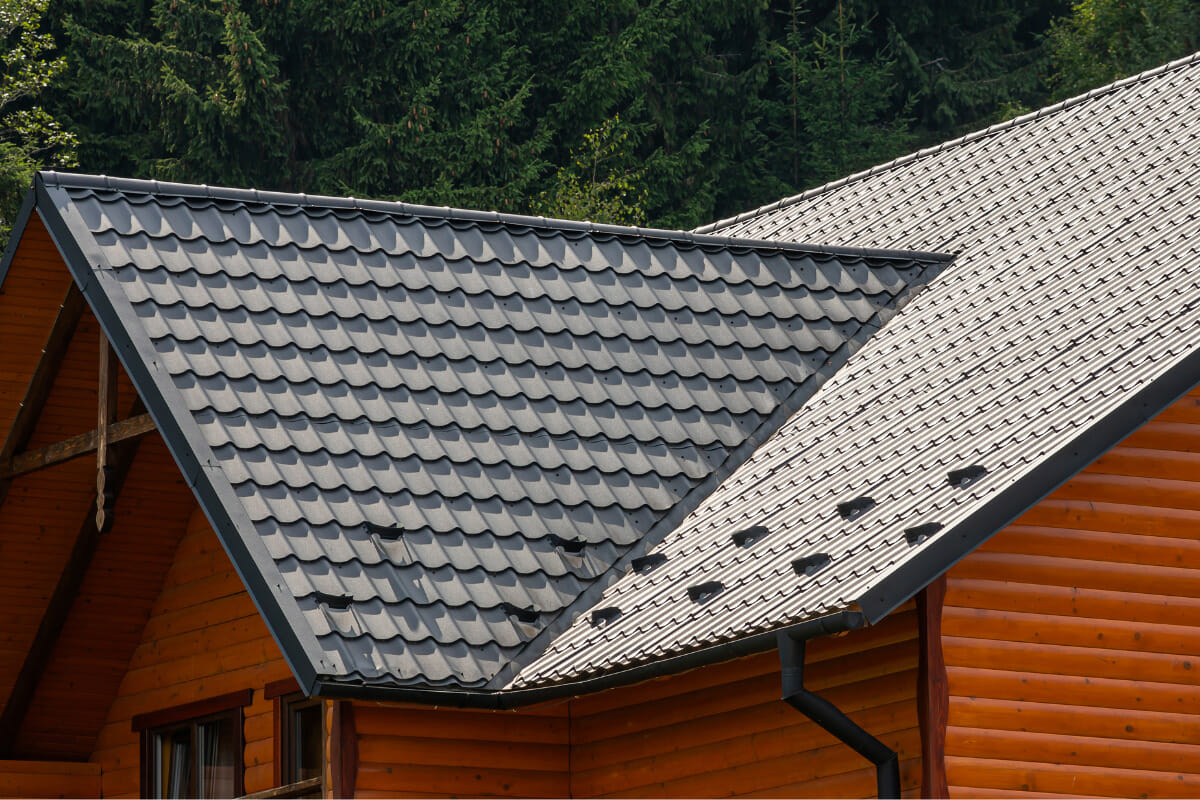
Trust Us With Your Metal Roof Installation
In the grand scheme of metal roofing, the choices can seem as vast as the sky above. But armed with the knowledge you've gained here, you're now well-prepared to make an informed decision. From the enduring elegance of copper to the reliability of steel, each metal roof boasts its unique strengths.
If you also want to install a high-quality metal roof in Pittsburgh, then you can rely on McClellands Contracting and Roofing. We install all types of metal roofs. Contact us today at (412) 353-5660 to learn more!

